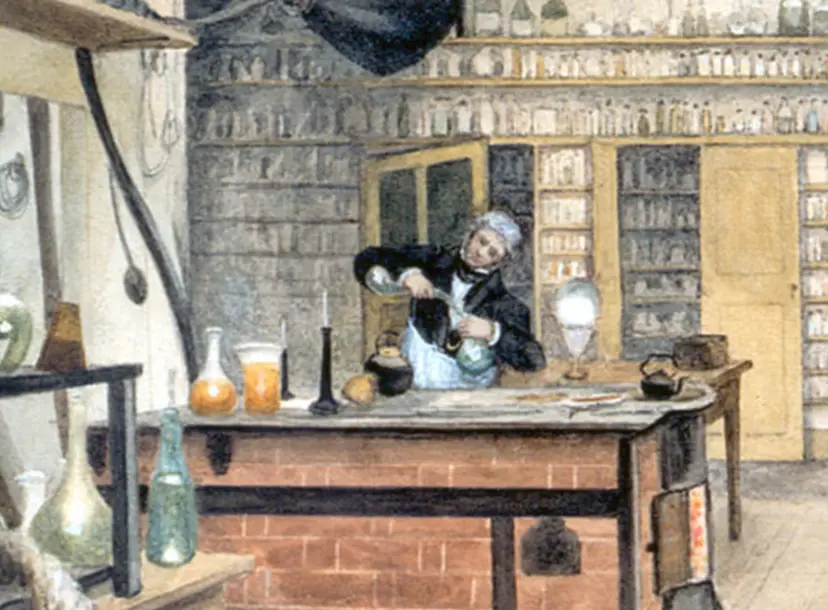About Faraday
The Ri is very proud of its connection to Michael Faraday. You may not have heard of him before, but he is one of the world's most important scientists. His discoveries, made in our basement in our building in Mayfair, helped to make the modern world how we know it today. He made discoveries that made generating and using electricity much easier, making it possible for us all to switch on lights, cook our dinner, play on games consoles. He also invented the electric motor which not only is used in all cars, but is also used in fans, washing machines and hair dryers. His story is even more incredible because he didn't come from the upper classes, nor was he particularly well educated. It was very unusual when he was alive for anyone that wasn't already rich to become successful or to work in science.
Early work
Michael Faraday was born on 22 September 1791 in an area called Newington Butts, which is roughly where the Elephant and Castle is in modern London. His father was a blacksmith, a person who works with iron and steel, shaping them in a hot furnace. This was a job with a low status, which meant that Michael Faraday would have also had a low status when he was growing up.
After studying at school, at the age of 14 Faraday started an apprenticeship as a bookbinder. This sounds very young, but at the time it was very common to start work a lot younger than we expect to today. He started to read the books about science that he was binding, which got him interested in the subject. When he was 21, he was given tickets to talks at the Royal Institution by one of his customers and came to hear Humphry Davy talk. Faraday took notes and presented them to Davy hoping for a job at the Royal Institution. Unfortunately, there wasn't one available at the time. About a year later though, there was a fight between two RI staff members which meant that one of them was fired. Davy remembered being impressed with Michael Faraday, so hired him at the RI Chemical Assistant.
At the Ri
For the first few years that Faraday worked here he worked closely with Humphry Davy, although they didn't always get on. Davy and Faraday travelled together in Europe meeting many other famous scientists. Davy's wife treated Faraday like a servant on this trip. When they came back to England, Davy made Faraday work on different topics to him.
However, when Davy left the RI as a researcher, Faraday was able to start making some of the amazing discoveries that made him famous. In 1821, he made the discovery that led to the development of the electric motor. Not long afterwards, he discovered a very important chemical called benzene. Benzene is used in lots of different industries, but is also very dangerous. It is present in cigarette smoke and one of the chemicals that makes cigarettes so deadly.
In 1825, Faraday started two series of events that have been going on ever since. The first is our Friday Evening Discourses. These are for adults, and the audience gets very dressed up for them. They have a lot of traditions associated with them: they start with two processions of our Council; and last precisely for one hour. The speaker at the Discourse is locked into a room for 5 minutes before the start of the talk, as once one of our speakers got nervous before giving his talk and ran away! The other events that Faraday started was our CHRISTMAS LECTURES, which aren't about Christmas, but about science and happen at Christmas time. These are aimed at young folk and cover all sorts of science topics in an interesting and entertaining way. Faraday gave 19 series of CHRISTMAS LECTURES, the most famous of which was on the chemical history of a candle.
Faraday's research had mixed fortunes. His discoveries of electricity generation and transmission have helped shape the modern world, and are some of the most important discoveries ever made. However, he wasn't always so successful; he was asked to make glass. He tried for many months, but in the end was unsuccessful. Which just goes to show that even the greatest scientific minds aren't good at everything!
End of career
Towards the end of his career, Faraday was asked to work on improving lighthouses, to help save ships at sea. He was very successful, and as a thank you the Queen's husband, Prince Albert, made a gift of a house at Hampton Court for him. He died there on 25 August 1867, and is buried in the Sandemanian plot in Highgate Cemetery.
